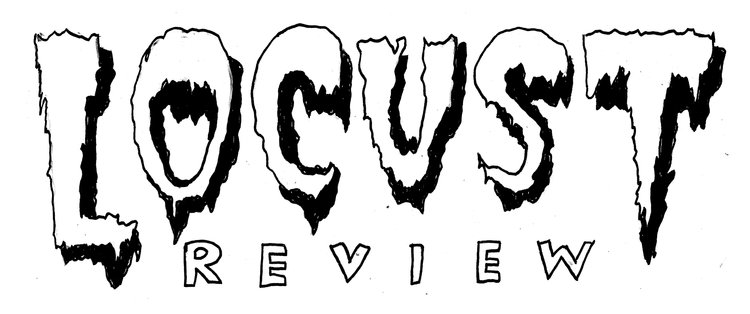Originally appeared in Locust #8. Splash image is a photograph by Richard Reilly of artwork by Tish Turl and Adam Turl.
IN THE days and months after the passing of Death and the armies of St. Guillotine, some few returned to what was left of the factory. The red flowers of the workers still adorned every part of the hulking remains. Above the yard of the old factory they had grown over to form a broad canopy, the floor of which was always carpeted by the delicate red petals that fell like snow. But no petal fell where once the great blade of St. Guillotine had stood and the ground there was stained black as if scorched. Light came through the floral canopy and shattered into shapes and symbols that shifted and changed with the arc of the sun. At night the silvery light of the moon drew other shapes and symbols into the soft grass beneath.
After a time, the Few that had returned, after the final victory of St. Guillotine, began to record the shapes and symbols carefully illuminated by the light falling day and night through the ever shifting canopy. From among the Few came the Translator, who became known as Omnia, and Omnia was the reader of the symbols and shapes so recorded by The Few. Omnia read out the translations from the center of the blackened space of the Holy Blade and as they read and translated the stories and narratives took form in the flowers of the canopy. Often the jeweled face of St. Guillotine herself would appear to smile and listen for a time before being lost again between the shifting buds and petals. Omnia, The Translator and Reader, told the stories of the class wars and the resurrections and the passing away of death. They spoke of the terrors and horrors of oppression and capitalism. And always The Few were attentive in recording the collective memories. Beneath the canopy was stored all the history of the workers. In time, the old factory became as a holy place and library and the comrades, new and old, would come to rest among the red petals and to read and study and watch the stories unfold in the roof and colored floor. Above the entrance hung a simple sign suspended by two thin vines that read:
“Lay down your labors, good worker.
Put off your boots and gloves.
Enter, and be among your comrades whole.”
So it was that this place became known as The Red Temple and ever after it would lie at the heart of the New World.
Subscribe to Locust Review for as little as $1 a month.
Submit work to Locust Review by e-mailing us at locust.review@gmail.com.


